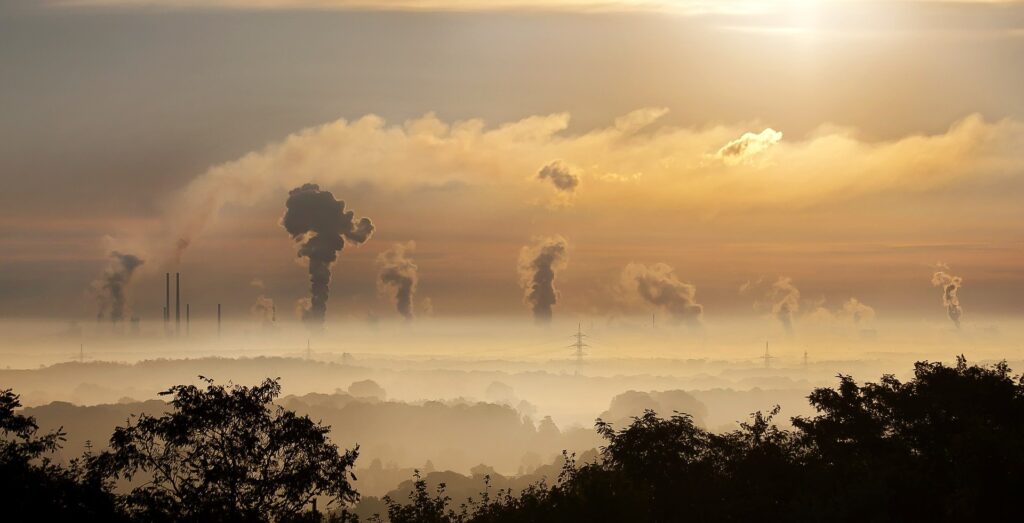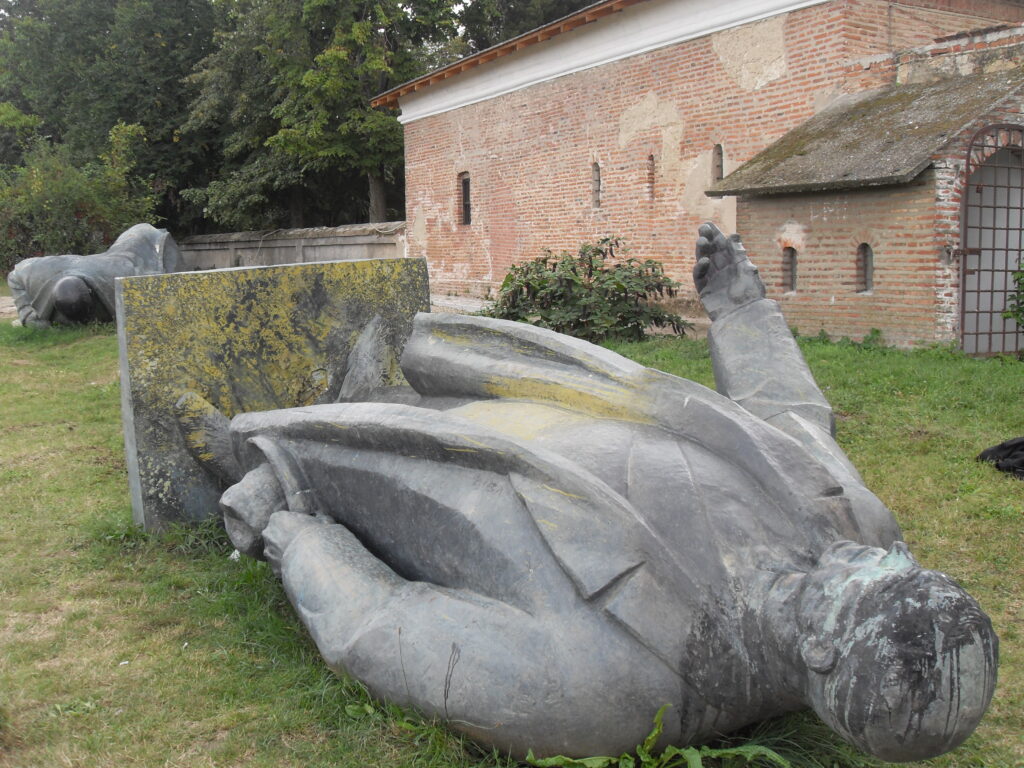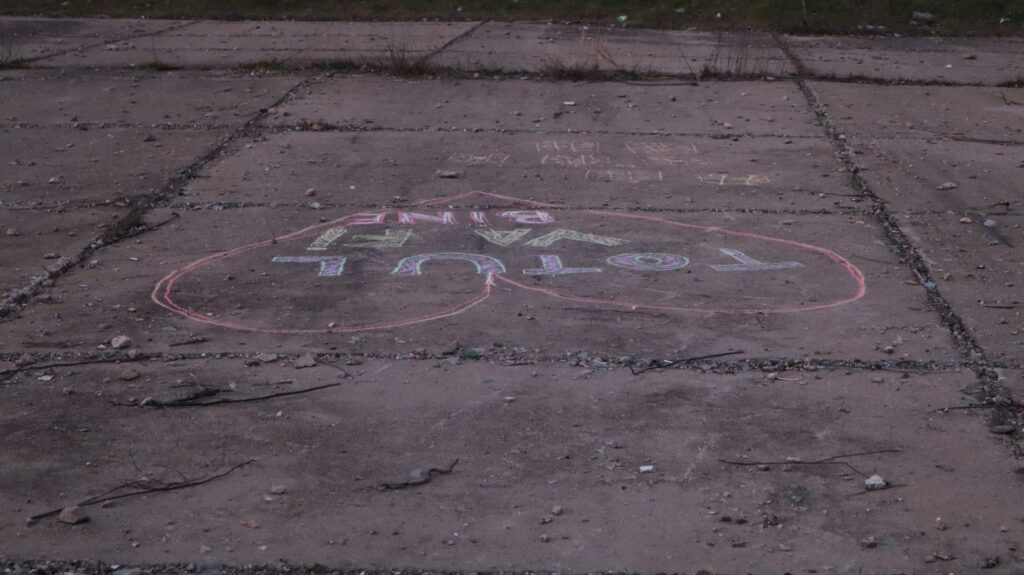
Welcome to spring.



I updated my Android phone the other day. Naturally, this lead to me going through the set-up procedure, logging into accounts again, etc, etc. But because I live in the European Union, I was also confronted with something I hadn’t seen before, a search choice screen.
Google has a huge hold on search in the EU, well over 90%, and a few years ago action was taken to punish Google for exploiting this monopoly. One result, that Google brought in of its own accord, was this search option choice.
In theory, I like this. Rather than your phone being automatically defaulted to Google, you can choose to set a different default. If nothing else this makes you think twice, and if you are one of the minority who already use an alternative to Google (hello me!) then at first you think, ‘great, this will simplify the process.’

However, I then looked at the options I was given … despite being someone reasonably interested in Google alternatives, someone who has tested a range including Bing, Duck Duck Go, Ecosia, Qwant and Startpage, among others, I was intrigued that I didn’t recognise any of the suggested apps. I was tempted to choose one, but instead searched for more info on these companies. The result, they all looked quite dodgy! So, surprise, I defaulted to Google (before changing it later).
This is a shame, as the idea is good. In fact, done well, a proper choice system as part of setting up a phone or computer could be very convenient for a user, no matter the operating system. As I set-up the phone, had I been given a real choice for the most functions I use, I could have saved a lot of time.
For example, imagine that I went through a process where I was offered the default in-built messages app, or a list of the five most popular on the Play Store, AND an option to search for a specific app if my own preference isn’t included. Then continue this process for music, video, camera, and so on. Wouldn’t this be good for users, allowing us to get to the apps we actually want or use quicker. And could it also prevent pre-installed apps existing!
Well, I live in a dream world, cause if you read this excellent article from Tech Crunch, Europe’s Android ‘choice’ screen keeps burying better options, you can see how Google has successfully manipulated a ‘choice’ that can only lead a sensible user to wanting to use Google more.

We often like to believe that using technology like the Internet is green, or at least greener, than more traditional media, such as newspapers and magazines. But is this really true, and how do we measure it?
It’s easy to look at a pile of old newspapers and think of all the waste, even if you are taking them to be recycled. We don’t see the damage done by the servers hosting a webpage or think much about the electricity used to power the laptop that then displays the page you are viewing.
The Future Planet area of the BBC website is at least attempting to answer some of these questions by doing their best to measure the carbon impact of each page they publish, from measuring the carbon output of the journalists involved to the environmental impact of publishing a page. You can read the article here, https://www.bbc.com/future/article/20200131-why-and-how-does-future-planet-count-carbon, and it is highly recommend.

As heard on 99% Invisible – Pockets: Articles of Interest
I do not own the rights to this music
Shaun Rooney’s header clinched the second major trophy in Saints history.
Not a great game, but a great achievement. Only the second major trophy in St Johnstone’s history. Adds a little smile to the face during these less than ideal times.

A lot has been said and written about statues. A great many people have got themselves worked up about this, whether it’s those who wish to take down tributes to people who no longer properly represent the country, state or city, or from those concerned about the re-writing of history.
By chance I happened to listen to an episode of the podcast 99% Invisible yesterday, whose subject was the taking down of communist, and largely Russian, symbols in Ukraine (of which, the dropping of the ‘the’ from its name was an important start). This episode is worth a listen as it highlights both the need to deal with uncomfortable symbols from the past, but also how the whole issue is not as easy as it may seem, even in a situation, like this where you might imagine it would be relatively straight-forward.
This is an issue that has had to be dealt with across the former communist nations of Europe over the last thirty years. In many cases it has been a simple case of returning names of towns, streets and squares to their pre-communist names – nobody wants to live on a Red Army Street anymore, unsurprisingly. However, what of the communist art that is displayed on buildings is actually attractive? Or what if the citizens actually like the communist name, and the development the communist regime brought to their town or village?
This episode handles the issues intelligently and with sensitivity. While it doesn’t provide a precise answer for what to do in the USA and the UK, the one clear lesson is involving people in the process. In my opinion this starts with education. How many people in the UK know how the people who have streets named after them made their money or why they were deemed famous enough (or was it just rich enough) to have a statue? As a first step, why not investigate the reason your street is called what is? Is it someone to be proud or ashamed of? Is it someone worth knowing more about or seemingly quite random?
But before you do that, read the article and listen to the podcast mentioned in this article here, https://99percentinvisible.org/episode/the-falling-of-the-lenins/.
Apple and Facebook have been quarreling recently over a change Apple wants to make to how companies like Facebook and Google can track your usage on a device like the iPhone. The basic premise of what Apple wants to do is to make a pop up appear so that users can give or deny permission for such tracking, and Facebook is saying, ‘not fair, it will destroy our business.’
The simple issue here is that Facebook, Google and a few others track everything we do online, including on our phones, so that they can target ads at us. For example, I ‘like’ an article on winter clothing a friend has linked on Facebook, or search for ‘winter jackets’ on Google and suddenly everywhere I go for a few days I see adverts for winter clothes.
You might be happy with this. Perhaps you have been struggling to find winter jackets in your area and the ads help you find a store you didn’t know about. However, many people are not so happy. This can range from general unhappiness at the idea that you are a product to outrage that companies are constantly spying on you.
So what’s Apple trying to do? It intends to introduce an permission screen in which you will have to actively give permission for Facebook, or any other app, on your device to track your activity outside of the app itself. Below is an example of what it will look like, according to Apple.

Facebook has objected. It claims that this policy will reduce the ability of apps to be supported by advertising, causing a shift to more paying apps, has suggested that small-businesses will suffer due to less places to advertise, and finally that many users will be denied quality free services.
So let’s think about this…
from the current situation, where apps have to ask permission to use location, the camera, etc., is that most people accept these with no thought. Why does Facebook think this won’t happen now?
Second, if being constantly tracked by Facebook is such a good thing, won’t people allow it?
‘Small-businesses will suffer.’ Well, no-one wants that, especially not a mega-advertising corporation like Facebook. Let’s re-word that one to what it really means, ’Facebook will suffer if small-business are reluctant to throw money at our ad business.’
‘More paying apps.’ It’s true that if a business can’t support itself it needs to find ways to make money. Some (admittedly not many) newspapers have done well by offering subscription services for their sites and apps. Companies like Adobe and Microsoft are also able to sell services, presumably because they are providing advert free products that many people like. So Facebook’s real fear here is that it may lose revenue, and if it loses enough it will need to find new ways of funding itself, and presumably there are plenty people in the company who know there isn’t a chance in hell that more than a handful of people would pay for their services.
So does this mean that Apple are some kind of wonderful humanitarian organisation looking out for you and me?
Obviously not. First of all, Apple are making it very public that from the first iPhone till now they allowed Google and Facebook to do what they wanted. Indeed, they still will, they are just adding a permission screen. While I’d say it’s better late than never, it is late. (Not that I’m expecting Google to introduce such a system anytime soon to my Android phone.)
So why the change form Apple? Money. Users are more sensitive and more aware of what is happening to their data and Apple is in a good place to do something. Unlike Facebook and Google, Apple makes its money from selling devices and products. It doesn’t need your personal data to keep making loads of money, it just needs to persuade you to keep buying Apple products. Now it is giving you one more reason to do so.
Apple does claim that its App Store monopoly is in the interests of customers, though many would argue that monopoly suppliers have rarely been good for people. The App Store is generally higher priced that alternatives, which is presumably coincidental to the large take Apple slices off any purchase.
In conclusion
While I’m not sure I really believe that Apple has its heart in the right place, I have to side with them on this. It’s mad that a company can invade a device that I have bought and fully paid for and track everything I do there without my permission and with no way to prevent them. If this is bad for Facebook, so be it, there are plenty alternatives out there.
There aren’t many sportspeople who get a song written for them. I don’t mean one of those, usually short-lived, chants that are sung by the crowd for a favourite. I mean a real song, a song that you walk around humming. Hank Aaron, who died today, was one of those.
Hank Aaron was a baseball player, mainly for different versions of the Braves (Boston, Milwaukee, Atlanta), who reached these statistical heights.
Now for most people, baseball stats don’t mean much, so let’s focus on one of those numbers, HR – 2nd.
HR means ‘home run,’ when a player hits the ball out of the park. The one baseball player whose name sports fan will have heard of, even they have never seen a baseball game, is Babe Ruth. Babe is probably the most iconic figure in American sports, and his 714 home runs was considered an unbreakable record.
Hank Aaron was a black man. He was born in Alabama one of the most deeply segregated states in the USA at the time. He was not supposed to rise from this to beat the Babe, but on the night of April 8, at 9.07pm, he went from equalling him on 714, to beating him with 715. At the time, LA Dodgers commentator said, ‘”A black man is getting a standing ovation in the Deep South for breaking the record of an all-time baseball idol. And it is a great moment for all of us.”
What Scully didn’t mention was that in the period leading up to this moment Aaron had been receiving daily death threats, some people just couldn’t accept that a Black man was over-taking the Babe. When fans ran onto the field as Aaron ran the bases, he didn’t know if they were coming to celebrate with him or coming to kill him.
Hank Aaron went on to hit a total of 755 home runs. He played at a high level all his career, who lived a decent remarkable life after retiring as a player. He died in his sleep on January 22, 2021.
Every Monday of 2020, at 1.30pm, I have taken a photo of the view from my balcony. At the time I started this I didn’t know what kind of year 2020 was going to be.
Outside my window is Parcul Natural Vacaresti (Vacaresti Nature Park), a unique wetland near the city centre of Bucharest, a place that nature took over when the original project to develop it was abandoned (read more here, https://parcnaturalvacaresti.ro/en/brief-history).
The year started with an unusually dry and warm winter, then a significant fire in February that consumed more than half of the park, before a regeneration, that by the end of the year had made me forget it had ever happened.
When we entered lockdown in March, there was something soothing about the sight of this landscape and seeing how nature went on with its life regardless. As restrictions were relaxed, the park came into its own as a place for people to safely exercise or allow children to play, teenagers to meet surreptitiously.

After the green renewal, came the hot summer days, the browns of autumn, and the occasional snow-covered winter. Above all, life continues, we adapt, we move on.
I’ve been experimenting with H5P again, and this time made a flashcard style activity.
Do you like sport? Can you find the ten sports hidden in this puzzle?
[h5p id=”1″]
Live and Direct!
According to my computer it will take me 143, 160 minutes to listen to all the music saved on my it. So the challenge is set, let’s listen to each song at least once in the next year.
Why didn’t I do this during lockdown when I could have got a good start? Or the summer holiday? well, never mind, it’s not like it’s going to be a punishment.
So to kick off, and since we were planning a lesson on the Notting Hill Carnival earlier, Aswad– Live and Direct!
Recorded in 1982 at the Notting Hill carnival, this is one of the classics of British reggae, before they went commercial, and not unreasonably, made some money in the late 80s. It’s a 45 minute dub concert, showcasing that the second and third generation of Black youths had the vibe down as good as anyone.
Live albums are rarely truly live, and even rarer catch the excitement of the performance, but this is a classic timepiece of a band at its peak and of the sound of disaffected British youth one year on from the Brixton Riots.
Stand out track: African Children.

Celebrated by Rolling Stone magazine among others as one of the greatest albums of all time, Tea for the Tillerman by Cat Stevens is 50 years old this year. Cat Stevens has even recorded it as Tea for the Tillerman2. So is it any good?
Let’s start at the album cover. If you’d bought this in 1970, this what you’d experience first. As a former art student, he painted this himself, too which I suggest, good you took up music. Am I the only one who thinks it looks like the kind of thing that a children’s band would produce?
Anyway, on to the music.
Where Do The Children Play?
A subtle song about the harm we do to the environment. A slow burner in which Stevens gets angrier the longer the song goes on, as he moves from planes, cosmic trains, lorry loads, to skyscrapers cracking the sky … all them leaving the question, where do the children play?
Hard Headed Woman
A bit more traditional here. He’s a man who needs a woman who love and understand hi, … cause guess that’s the point of women, to love men and understand them?
Wild World
This is really not a nice song. A woman has dared to leave Mr Stevens, breaking his heart. But she should be careful cause the world out there is wild, and her childish smile won’t be enough to get by on without, presumably, a man like Mr Stevens to protect her.
The line, ‘I’ll always remember you like a child, girl,’ is just a bit disturbing. He loved her for she seemed like a child? Or he is accusing of being childish? I think it’s the later, but what’s she done wrong, except the jerk?
Sad Lisa
Possibly because he subsequently said that while the character of the song is called, he’s really singing about himself, the thoughts and emotions here feel deeper than the last couple of tracks. If you read this as Lisa being Cat Stevens and the singer being, well Cat Stevens, then this is a reasonable bit of melancholic schizophrenia.
Miles From Nowhere
A song that plods along. Maybe the worst on the album. The lyrics hint at someone searching for a bit of spirituality, which becomes significant in his later career.
Miles from nowhere
Not a soul in sight
Oh yeah, but it’s alright
I have my freedom
I can make my own rules
Oh yeah, the ones that I choose
Lord, my body has been a good friend
But I won’t need it when I reach the end
But I Might Die Tonight
A bit of a cliched track about not wanting to do what the man says, working hard, doing the same old job, cause what’s the point, I might does tonight.
Longer Boats
A more intriguing sound on this one. Bit of traditional folk song element to it, with the phrase ‘longer boats coming to win us’ have a slowed down sea shanty element.
The longer boats are presumably the Vikings, and they are invading and taking the key from our doors, which presumably means they have taken possession. He moves on to say that he doesn’t want god on his lawn, suggesting he’s against religious symbols.
Seems to be a message about not accepting the false gods of invaders
Into White
I believe this what many young men of the time may have called ‘hippy shit.’ This is just random words of nonsense no doubt inspired by the odd stimulant or two.
‘I built my house from barley rice
Green pepper walls and water ice
And everything emptying into white’
Well, yes, if you build a house from rice, a couple of pepper and ‘water ice’ (glad he made clear it wasn’t other types of ice), then a pool of white nothingness seems a likely result.
On the Road to Find Out
There have been a couple of songs about travelling, finding happiness already, but this is the one that works. Musically there’s the right sense of understatement mixed with moments of passion. It is slightly undermined by it’s discovery at the end that the answer lies within.
Still it’s a good tune, we’ll forgive it.
Father and Son
The highlight of the album, as the song takes place of a conversation between a father and the son who mis-understand each other. While ultimately a simple message that a child grows up and leaves home to go his own way, it’s executed well. Even survives a abominable version by Boyszone
Tea for the Tillerman
A throw away little track at the end, manages to mention ‘children’, ‘sin’ ‘Lord’ and ‘play,’ key repeated words of this album.
So what do we conclude? It’s hard to see why this is considered a classic. There are three strong songs and the rest is filler. What saves it all is Cat Stevens has a great voice, and there’s something magic in the production, it sounds good even then I don’t care for the song.
But if you’re going to listen to a classic album from 1970 from a singer-songwriter, Van Morrison’s Moondance is the one.